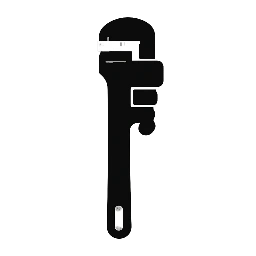Choosing a commercial water filter for restaurants is one of the most important decisions a food service operator can make, yet it’s often overlooked. The quality of your water directly impacts everything from the taste of your food and beverages to the longevity of your expensive kitchen equipment. Ignoring this crucial aspect can lead to a cascade of problems, from customer complaints to costly repairs. A robust commercial water filtration system is not an accessory; it’s a non-negotiable part of a successful operation.
Why is a Commercial Water Filter So Critical for Restaurants?
The benefits of a high-quality commercial water filter for restaurants go far beyond serving a better glass of water.
- Elevated Flavor and Aroma: Tap water can contain chlorine, sediment, and other impurities that create an off-putting taste and odor. This can ruin the subtle flavors of coffee, tea, and even alter the taste of your signature dishes. A proper commercial water purification system ensures that every drop of water used for cooking and beverages is clean, pure, and ready to let your ingredients shine.
- Extended Equipment Lifespan: Hard water, which is high in minerals like calcium and magnesium, is a silent killer for commercial kitchen equipment. Over time, these minerals build up as scale, clogging pipes, damaging heating elements in dishwashers, steamers, and coffee machines, and leading to expensive repairs and early replacement. A water softening system or a filter designed to handle hard water can prevent this scale buildup, saving you thousands in maintenance and new equipment costs.
- Enhanced Customer Satisfaction: Crystal clear ice, spot-free glassware, and refreshing beverages are all a direct result of clean water. These small details contribute to the overall dining experience, building your reputation and encouraging repeat business. Customers notice when the water tastes good, even if they can’t pinpoint why.
Navigating the Different Types of Water Filtration Systems
The world of commercial water filters is diverse, with various technologies designed to address specific issues. Understanding your water’s composition is the first step. You can get a water quality report from your municipality or a professional water test to determine what contaminants you need to filter out.
- Carbon Filters: These are the most common type and are excellent for removing chlorine, chloramines, and other organic compounds that cause bad taste and odors. They work by absorbing impurities through a bed of activated carbon.
- Sediment Filters: These act as a pre-filter, removing larger particles like dirt, rust, and sand. They are essential for protecting other, more delicate filters from clogging and are often used in multi-stage systems.
- Reverse Osmosis (RO): An RO system uses a semi-permeable membrane to force water through, trapping nearly all dissolved solids and contaminants, including heavy metals, nitrates, and salts. This process produces extremely pure water, which is ideal for coffee makers and ice machines where clarity and flavor are paramount. A reverse osmosis system can drastically improve the consistency of your beverages.
- Water Softeners: This system is specifically designed to tackle hard water by using an ion exchange process to remove calcium and magnesium. While not a filter in the traditional sense, a water softener is a critical part of a comprehensive commercial water filtration system in areas with hard water.
Troubleshooting Common Water Filter Issues
Even the best commercial water filter for restaurants can encounter problems. Knowing how to troubleshoot them can save you time and money.
Problem: Low Water Pressure
- Cause: The most frequent cause is a clogged filter. The filter media has become saturated with sediment and contaminants, restricting water flow.
- Solution: Check the filter’s service life and replace it if it’s due. If it’s a sediment pre-filter, replacing it might solve the problem. Also, inspect for any kinks in the water lines or loose connections.
Problem: Unpleasant Taste or Odor
- Cause: This usually indicates that the carbon filter has reached its capacity and is no longer effectively removing chemicals like chlorine.
- Solution: It’s time for a filter change. Sticking to a regular filter maintenance schedule is key to preventing this issue.
Problem: Equipment Damage (Scale Buildup)
- Cause: Your current filter system isn’t adequately addressing water hardness.
- Solution: You likely need to integrate a water softener or a dedicated scale inhibitor into your setup. Consult with a professional to assess your water’s hardness levels and recommend the right solution.
Problem: Frequent Filter Replacements
- Cause: The filtration system may be undersized for your restaurant’s water usage, or your water has a high concentration of contaminants.
- Solution: Consider upgrading to a higher-capacity system that can handle your daily water volume. This investment will pay for itself in reduced operating costs and less frequent filter changes.
In the fast-paced world of food service, details matter. Investing in a commercial water filter for restaurants is a fundamental decision that protects your assets, enhances your product, and strengthens your brand. It’s an essential part of ensuring every meal, every drink, and every customer experience is nothing short of exceptional.


Leave a Reply